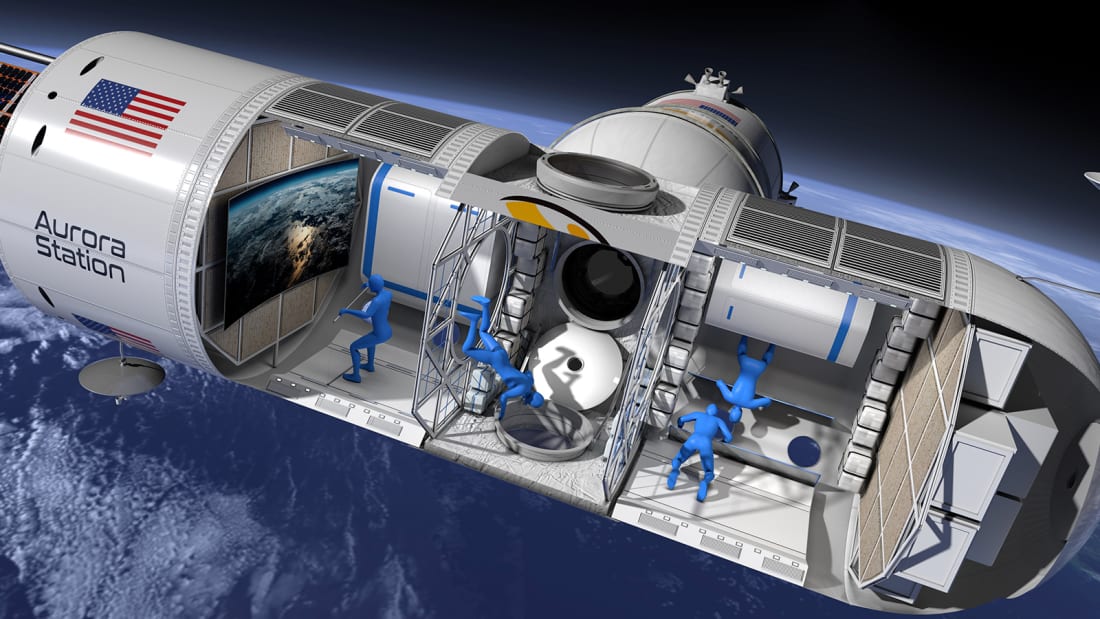First luxury hotel in space announced
CNN — Want to see 16 sunrises in one day? Float in zero gravity? Be one of the few to have gazed upon our home planet from space?
In just four years' time, and for an astronomical $9.5 million dollars, it's claimed you can.
What's being billed as the world's first luxury space hotel, Aurora Station, was announced Thursday at the Space 2.0 Summit in San Jose, California.
Developed by US-based space technology start-up Orion Span, the fully modular space station will host six people at a time, including two crew members, for 12-day trips of space travel. It plans to welcome its first guests in 2022.
"Our goal is to make space accessible to all," Frank Bunger, CEO and founder of Orion Span, said in a statement. "Upon launch, Aurora Station goes into service immediately, bringing travelers into space quickly and at a lower price point than ever seen before."
...
While a $10 million trip is outside the budget of most people's two-week vacations, Orion Span claims to offer an authentic astronaut experience.
Says Bunger, it has "taken what was historically a 24-month training regimen to prepare travelers to visit a space station and streamlined it to three months, at a fraction of the cost."
Note all the standard elements, the outlandish claims, the ridiculous timeline, the lack of credible supporting evidence, the vague plans compensated for by pretty graphics, the claims of enormous gains in efficiency and cost reduction backed by nothing, all credulously reported.
Recently tourism has come to play much the same role for space boosters that it does for chambers of commerce in economically depressed regions, and for some of the same reasons. There's a simplicity and generality that can almost make it seem like a panacea. We need money so will just get people to pay us to come here. The trouble is, of course, that while there is a great deal of money in being a tourist destination, it is remarkably difficult become one.
With space tourism there's the additional problem of the disconnect between the reality of space travel and the decades of accumulated fantasy. The problem is, in a way, analogous to that described in the This American Life episode "Put a Bow on It." It's not enough to come up with a product that sounds interesting; you have to come up with one that sounds interesting and keeps people coming back.
As we've previously mentioned, when someone who has no relevant experience or specific innovations to point to claims to be able to do something at a fraction of the time and cost, you should generally assume the claims are bullshit until proven otherwise, but even if we take the claims at face value, we are still talking about millions of dollars, months of training, and no guarantee of safety in order to spend a few days in zero gravity and see a truly spectacular view. There are those who would gladly give their life savings for such an experience, but I very much doubt there are enough of these people (at least among those whose life savings could buy the ticket) to make a viable industry.
One of the hard lessons of the Apollo Program was that the novelty wears off quickly. A real plan for exploring space has got to start with a real foundation.



























